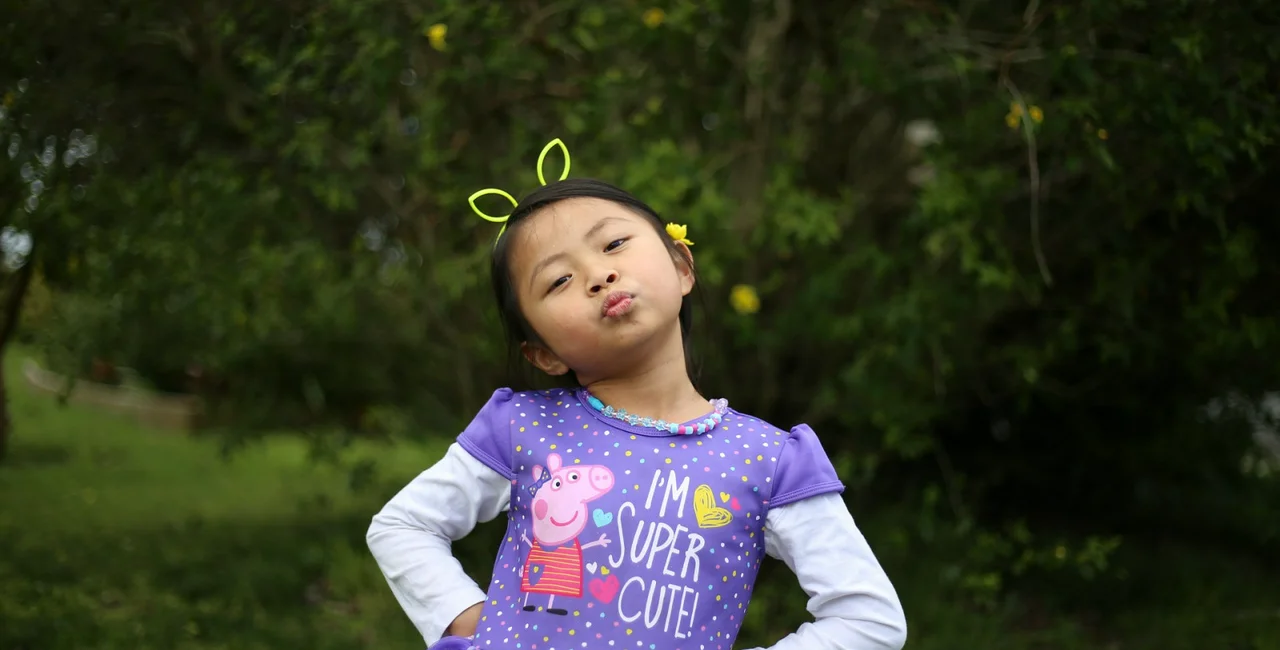Forget about rolling over or holding a cup. One of the most important milestones during your child’s first year is acquiring language. If you’re the parent of a bilingual, make that two languages—a scary prospect, but a necessity for most expat families residing in the Czech Republic.
The good news is that the future may be brighter for bilingual kids who, research tells us, consistently demonstrate better problem-solving skills than monolinguals. Bilingualism may serve children well into old age, too; studies have shown a slower cognitive decline among bilingual dementia patients as opposed to monolinguals with the same diagnosis.
Whatever reason you’ve chosen to raise your child bilingual, rest assured that it’s not as daunting a task as it may seem. We asked Alena Netolická, BSc. (Hons.), M.H.Sc., Speech-Language Pathologist for the Canadian Medical Center in Prague, for her language-learning advice. The biggest mistake parents make? “Not raising children bilingually when they are equipped to do so,” she says. “As philosopher Ludwig Wittgenstein said, ‘The limit of my language, means the limit of my world.’” Here, her tips:
10. Start as early as birth.
Most experts agree that infants possess the ability to acquire more than one language. “Exposing children to languages from birth enables them to capitalize on their innate ability to absorb linguistic subtleties,” says Netolická. What’s important to remember is that babies and toddlers thrive on active, not passive, learning. “Music or television are fine sources of language exposure for adult learners and older kids, but research has shown babies learn best from interaction,” she advises.
9. Choose a strategy and stick with it.
Language strategies are essential for helping children acquire languages as separate systems, Netolická says: “Multilingual families usually elect the one-parent, one-language system whereby each parent speaks his or her native language; some families opt to speak the minority language (e.g. English) at home and the majority language (e.g. Czech) outside of the home.” Yet another approach, common in international schools and multicultural households, is the alternating of language based on time or place. Consistency, she adds, is key no matter which strategy you chose.
8. Try to avoid mixing languages.
When parents mix languages in one sentence or switch languages abruptly in the middle of a topic it can be confusing to kids. “And if your child senses you speak both languages, she’ll likely respond in her dominant language,” adds Netolická. (Note that the dominant language usually emerges as the one most frequently used in the child’s environment—while this is often the primary caregiver’s language, it may well become, as the child gets older, the language she speaks every day at school.)

7. Don’t feel too guilty about slip-ups.
According to Netolická, strictly adhering to a particular strategy at all times can be an unrealistic goal. “Families who follow the one-parent, one-language system may find three-way conversations tricky, and that it leaves the parents with no common language.” Occasionally speaking your non-dominant language with a spouse or in-laws isn’t necessarily harmful to your child’s language development Netolická says.
6. Make speaking the non-dominant language fun.
Bilinguals can be hesitant to speak their non-dominant language. But when the interaction is made enjoyable, says Netolická, they usually warm to it: “Most parents make the second language attractive by associating it with something desirable.” For those expat parents trying to expose their smallest ones to Czech, for instance, she suggests the educational television show “Kouzelna Skolka,” geared toward 3- to 6-year-olds. Selecting a caregiver who speaks your child’s non-dominant language is another way to give bilinguals a boost.
5. Opt for a bilingual-friendly school.
Multilingual children face the greatest obstacles when they begin school, where performance expectations are designed for monolinguals. “Multilingual students may need extra time developing academic proficiency,” says Netolická, adding that while your child may be proficient in both of her languages, some language-based tasks will be a challenge due to language interference. Choosing the right school—whether you opt for Czech public school or international school—can be essential to a child’s language development.
4. Don’t introduce a third language just because.
Netolická encourages parents to consider carefully just how important a new language is to a child’s life before introducing it. Is it the language he or she will need to be parented? Stay in touch with cultural heritage? Is the language required for academic purposes? Is it the majority language of the child’s home country? An answer of “yes” to any of these questions indicates language relevance. But remember, too, says Netolická, “Human beings are still able to learn language, with near-native competence, even when they are older.”

3. When it comes to literacy, a child-led approach is best.
There’s no clear consensus about when to introduce read and writing in a second language. One theory says that learning to do so in two languages simultaneously can be confusing; another says that delaying literacy can unnecessarily slow educational progress. Netolická’s take? “Literacy training in the child’s weaker language will, of course, be more challenging. But how challenging depends on the child. Some children learn to read and write relatively easily and some struggle for many years.” Let your child take the reigns, but encourage literacy by writing him funny notes or asking him to read a grocery list that’s written in the language not taught at school.
2. Be gentle with corrections—don’t correct every mistake.
The joy that comes from communicating and from getting one’s message across should never be jeopardized, says Netolická who advises parents not to correct a child’s every grammar or vocabulary mistake: “Instead of saying, ‘We don’t say taked but took’, you might restate the sentence as if you are asking for clarification: ‘Do you mean that you took the last cookie?’” While your kids’ language missteps may be adorable, she advises parents not to laugh at them. “And make sure you reward your child’s effort to communicate in both or all their languages,” she adds.
1. Forget what you’ve heard about language delays.
Parents are often told that their bilingual babies will speak later than monolingual children. Not so, Netolická says: “Multilingual children are expected to reach their language milestones around the same time as monolingual children.” When to worry? “If your child does not say her first words around her first birthday or if she has a vocabulary of fewer than 50 words or has not started combining words before her second birthday, a referral to a speech-language pathologist should be made.”
What are your experiences raising a bilingual child? Share your stories and tips below.












 Reading time: 5 minutes
Reading time: 5 minutes 























